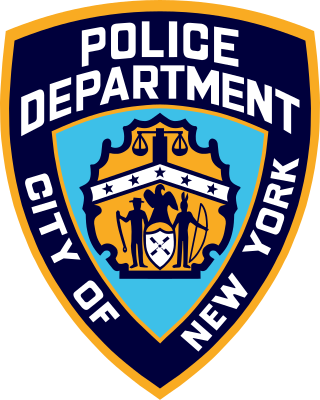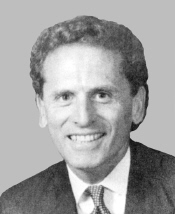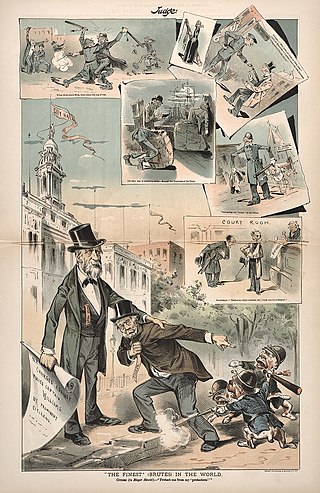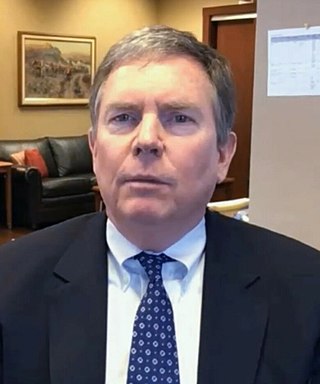This article needs to be updated.(June 2019) |
The Handschu agreement is a set of guidelines that regulate police behavior in New York City with regard to political activity.
This article needs to be updated.(June 2019) |
The Handschu agreement is a set of guidelines that regulate police behavior in New York City with regard to political activity.
In 1971, members of the Black Panther Party known as the Panther 21 were tried for conspiracy to blow up police stations and department stores. They were acquitted of all charges after only 90 minutes of jury deliberation. [1] The trial revealed the extent to which the NYPD had infiltrated and kept dossiers on not only the Black Panthers and other radical groups, but also on anti-war groups, gay rights activists, educational reform advocates, religious groups, and civic organizations. [2]
The Handschu agreement, or decree, was the result of a class-action lawsuit filed against the City of New York, its Police Commissioner and the Intelligence Division of the New York City Police Department (NYPD) on behalf of Barbara Handschu and fifteen other plaintiffs affiliated with various political or ideological associations and organizations, known as Handschu v. Special Services Division, 605 F.Supp. 1384, affirmed 787 F.2d 828. [3] The plaintiffs claimed that "informers and infiltrators provoked, solicited and induced members of lawful political and social groups to engage in unlawful activities"; that files were maintained with respect to "persons, places, and activities entirely unrelated to legitimate law enforcement purposes, such as those attending meetings of lawful organizations"; and that information from these files was made available to academic institutions, prospective employers, licensing agencies and others. In addition, plaintiffs protested seven types of police misconduct: (1) the use of informers; (2) infiltration; (3) interrogation; (4) overt surveillance; (5) summary punishment; (6) intelligence gathering; and (7) electronic surveillance, and alleged that these police practices which punished and repressed lawful dissent had had a "chilling effect" upon the exercise of freedom of speech, assembly and association, that they violated constitutional prohibitions against unreasonable searches and seizures, and that they abridged rights of privacy and due process. [4]
In 1985, the court found that police surveillance of political activity violated constitutional protections of free speech. [3] This ruling resulted in a consent decree which prohibited the NYPD from engaging "in any investigation of political activity except through the … Intelligence Division [of the Police Department]" and required that any "such investigations shall be conducted" only in accordance with the Guidelines incorporated into the Decree. The Guidelines further prohibited the Intelligence Division from "commencing an investigation" into the political, ideological or religious activities of an individual or group unless "specific information has been received by the Police Department that a person or group engaged in political activity is engaged in, about to engage in or has threatened to engage in conduct which constitutes a crime…." [4] [5]
According to the terms of the agreement, purely political activity can only be investigated by the Public Security Section (PSS) of the NYPD's Intelligence Division, and then only when the Section suspects criminal activity. When the PSS does suspect criminal activity on the part of political groups, it must obtain a warrant from the three-person Handschu Authority, a commission made up of two deputy commissioners and a mayor-appointed civilian.
The agreement also prohibits indiscriminate police videorecording and photographing of public gatherings when there is no indication that unlawful activity is occurring.
The department is also prohibited from sharing information pertaining to political activity with other law enforcement agencies unless those agencies agree to abide by the terms of the Handschu agreement.
The court order mandates the compiling of annual, publicly available reports listing the surveillance requests made by the NYPD and the number of such requests granted.
In 2002, the NYPD asked federal judge Charles S. Haight Jr., the judge who presided over the original case, to abrogate numerous provisions of the agreement, claiming that they inhibited the department's ability to prevent future terrorist attacks. [6] The requests, if granted, would allow any branch of the department to investigate any political activity, even without suspicion of criminal activity, but only by accessing publicly available meetings and information "as members of the public." [7] It would further allow the department to perform any type of surveillance of public gatherings deemed Constitutional, which is likely to include videorecording. The department also requested that the function of the Handschu authority be changed to investigating complaints of constitutional violations, which would take away the authority's power to oversee political investigations.
In regards to the requested changes, Police Commissioner Raymond W. Kelly said, "Today we live in a more dangerous, constantly changing world, one with challenges and threats that were never envisioned when the Handschu guidelines were written." [8]
Chris Dunn of the New York Civil Liberties Union, called the proposal "troubling," stating that the NYPD "has no legitimate reason to spy on lawful political activity." [8]
Former New York City mayor Ed Koch, previously a critic of police surveillance, agreed with the proposal to rescind large portions of the Handschu agreement. "That's the necessary cost of protecting the public in these times where we're dealing with terrorism," he said. [9]
On February 11, 2003, Haight ruled that the NYPD should be permitted to modify the 1985 Decree, but not to the extent originally requested by the City. The judge instructed the city to adapt the U.S. Attorney General's Guidelines on General Crimes, Racketeering Enterprise and Terrorism Enterprise Investigations, issued by Attorney General John Ashcroft in May, 2002. This weakened the original decree in that a preliminary inquiry could be initiated when there is "information … which indicates the possibility of criminal activity." [4]
In February 2007, Judge Haight ruled that the NYPD had violated the terms of the agreement by videotaping two demonstrations by advocates of the homeless, one in Harlem in March 2005, the other in front of New York City Mayor Michael Bloomberg's house in December 2005. On June 13, 2007, Haight reversed the ruling, saying that attorneys for the city had provided new evidence indicating that the protestors may have been "disorderly." [10] Lawyers for the demonstrators vowed to continue fighting to prove that the action was legal and peaceful.

The New York City Police Department (NYPD), officially the City of New York Police Department, is the primary municipal law enforcement agency within the City of New York. Established on May 23, 1845, the NYPD is the largest, and one of the oldest, municipal police departments in the United States.
In the United States, Red Squads were police intelligence units that specialized in infiltrating, conducting counter-measures and gathering intelligence on political and social groups during the 20th century. Dating as far back as the Haymarket Riot in 1886, Red Squads became common in larger cities such as Chicago, New York, and Los Angeles during the First Red Scare of the 1920s. They were set up as specialized units of city police departments, as a weapon against labor unions, communists, anarchists, and other dissidents.
Lawful interception (LI) refers to the facilities in telecommunications and telephone networks that allow law enforcement agencies with court orders or other legal authorization to selectively wiretap individual subscribers. Most countries require licensed telecommunications operators to provide their networks with Legal Interception gateways and nodes for the interception of communications. The interfaces of these gateways have been standardized by telecommunication standardization organizations. As with many law enforcement tools, LI systems may be subverted for illicit purposes.

The following are controversial invocations of the USA PATRIOT Act. The stated purpose of the Act is to "deter and punish terrorist acts in the United States and around the world, to enhance law enforcement investigatory tools, and for other purposes." One criticism of the Act is that "other purposes" often includes the detection and prosecution of non-terrorist alleged future crimes.

William John Martini is a senior United States district judge of the United States District Court for the District of New Jersey, having been in active service from November 14, 2002, to February 10, 2015. Martini is one of twenty-four judges seated on the New Jersey District Court, and his highest profile case to date was the corruption trial for former Newark Mayor Sharpe James.

NSA warrantless surveillance — also commonly referred to as "warrantless-wiretapping" or "-wiretaps" — refers to the surveillance of persons within the United States, including U.S. citizens, during the collection of notionally foreign intelligence by the National Security Agency (NSA) as part of the Terrorist Surveillance Program. In late 2001, the NSA was authorized to monitor, without obtaining a FISA warrant, phone calls, Internet activities, text messages and other forms of communication involving any party believed by the NSA to be outside the U.S., even if the other end of the communication lays within the U.S.

The Center for Constitutional Rights (CCR) is a progressive non-profit legal advocacy organization based in New York City, New York, in the United States. It was founded in 1966 by Arthur Kinoy, William Kunstler and others particularly to support activists in the implementation of civil rights legislation and to achieve social justice.
Barbara Ellen Handschu is an American political activist and lawyer, whose surname was memorialized on a set of federal guidelines "[ordering] restrictions on police surveillance ... signed by the city [of New York] in 1985", which became known as the Handschu decree.
Charles Sherman Haight Jr. is an American lawyer and a senior United States district judge of the United States District Court for the Southern District of New York, who has sat by designation in the District of Connecticut since he took senior status.
Daniels, et al. v. the City of New York was a class action lawsuit filed in 1999 against the New York Police Department (NYPD) and the City of New York, charging them with racial profiling and unlawful stop and frisk, and requesting the disbanding of the NYPD Street Crimes Unit.

Throughout the history of the New York City Police Department, numerous instances of corruption and misconduct, and other allegations of such, have occurred. Over 12,000 cases have resulted in lawsuit settlements totaling over $400 million during a five-year period ending in 2014. In 2019, taxpayers funded $68,688,423 as the cost of misconduct lawsuits, a 76 percent increase over the previous year, including about $10 million paid out to two exonerated individuals who had been falsely convicted and imprisoned.

Pappas v. Giuliani, 290 F.3d 143 (2002), was a case in which the United States Court of Appeals for the Second Circuit held that the First Amendment to the United States Constitution was not violated where a police officer was fired for mailing out racially offensive political materials from his home.

James Kelleher Bredar is the Chief United States district judge of the United States District Court for the District of Maryland. He previously served as a United States magistrate judge of the same court.

The Domain Awareness System is the largest digital surveillance system in the world as part of the Lower Manhattan Security Initiative in partnership between the New York Police Department and Microsoft to monitor New York City. It allows the NYPD to track surveillance targets and gain detailed information about them, and is overseen by the counterterrorism bureau.

Floyd, et al. v. City of New York, et al., 959 F. Supp. 2d 540, is a set of cases addressing the class action lawsuit filed against the City of New York, Police Commissioner Raymond Kelly, Mayor Michael Bloomberg, and named and unnamed New York City police officers ("Defendants"), alleging that defendants have implemented and sanctioned a policy, practice, and/or custom of unconstitutional stops and frisks by the New York Police Department ("NYPD") on the basis of race and/or national origin, in violation of Section 1983 of title forty-two of the United States Code, the Fourth and Fourteenth Amendments to the United States Constitution, Title VI of the Civil Rights Act of 1964, and the Constitution and laws of the State of New York.
The New York City Police Department is reported to have a number of military-grade X-ray vans that contain X-ray equipment for inspecting vehicles.

The New York City Police Department (NYPD) actively monitors public activity in New York City, New York, United States. Historically, surveillance has been used by the NYPD for a range of purposes, including against crime, counter-terrorism, and also for nefarious or controversial subjects such as monitoring political demonstrations, activities, and protests, and even entire ethnic and religious groups.

The New York City Police Department Intelligence Bureau is a division of the New York City Police Department (NYPD) which claims responsibility for the detection and disruption of criminal and terrorist activity through the use of intelligence-led policing. There is limited oversight over the Intelligence Bureau, and it conducts work in secrecy without the city council being informed of operations.

The New York City Police Department Counterterrorism Bureau (CT) is a division of the New York City Police Department (NYPD) responsible for preventing terrorist attacks within New York City. Former New York City Police Commissioner Raymond Kelly described the CT as "a Council on Foreign Relations with guns".

Anthony P. D'Esposito is an American politician and retired police detective from New York. A member of the Republican Party, he has represented New York's 4th congressional district in the United States House of Representatives since 2023. His victory in the 2022 midterm election was considered a major upset, contributing to the narrow Republican majority in the House of Representatives.